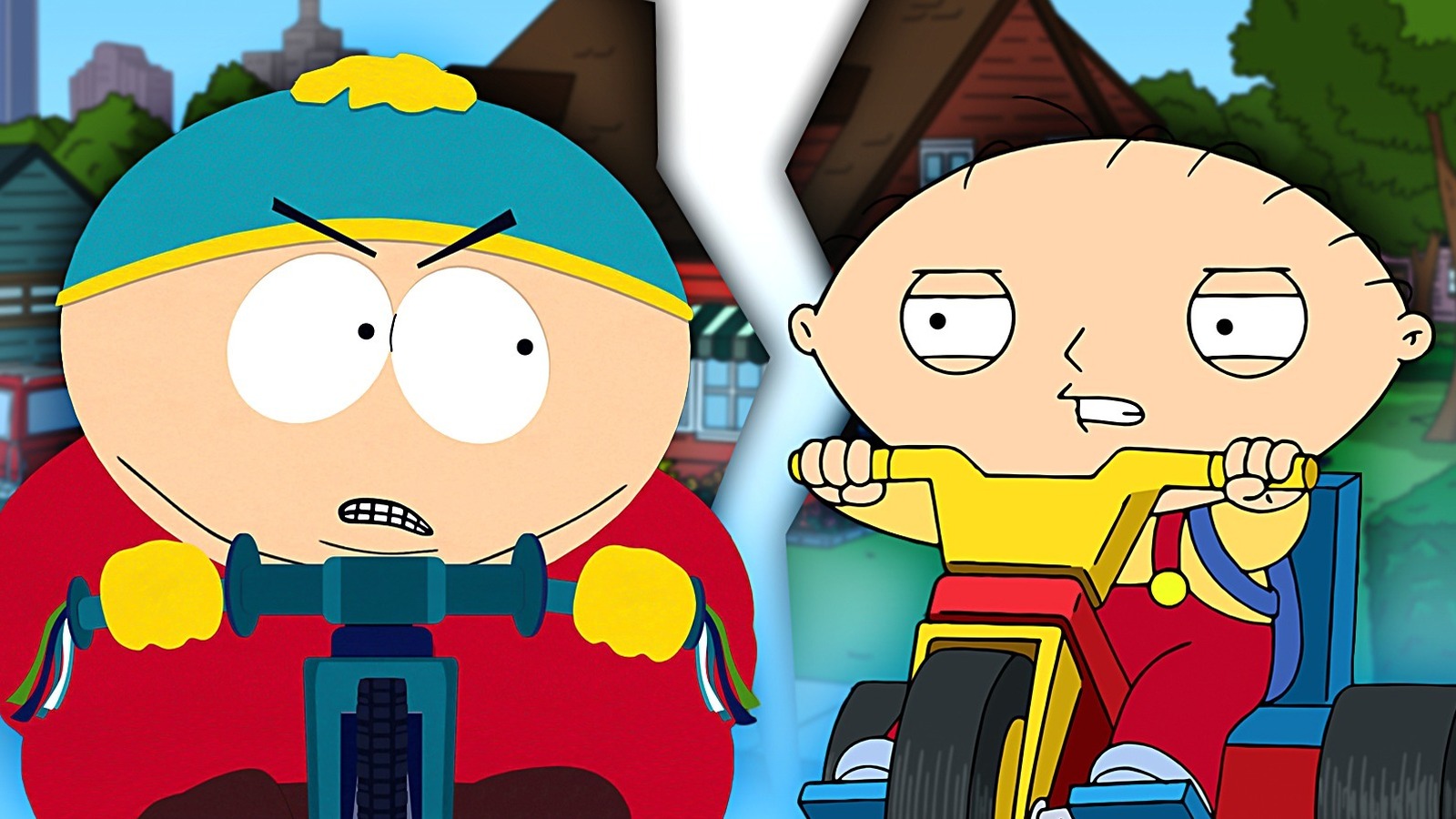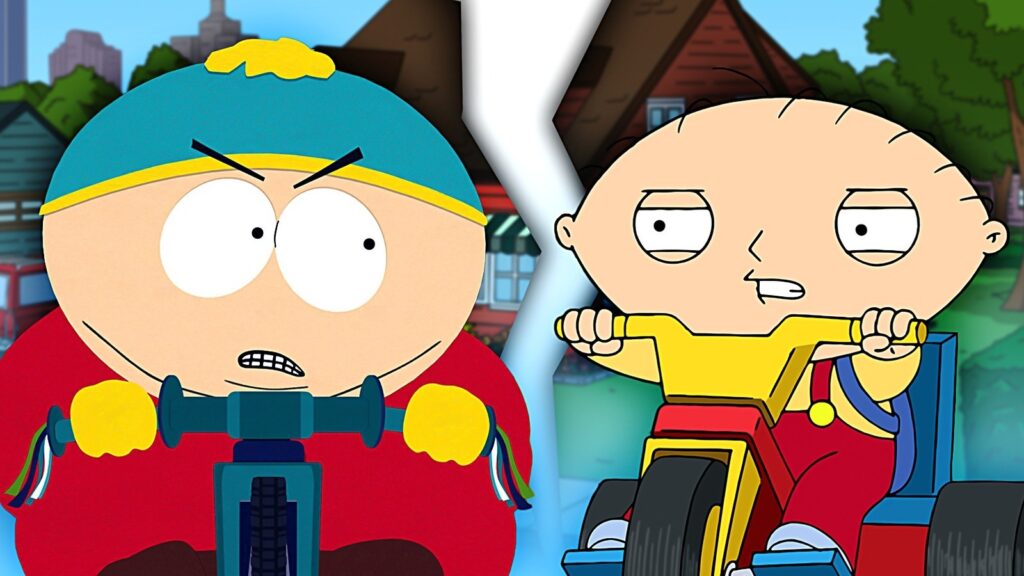
In the two-part “South Park” episode “Cartoon Wars” from 2006, it’s revealed that an upcoming episode of “Family Guy” will feature the Prophet Muhammad as a character. The citizens of the titular town become terrified over the thought of military retaliation from various Islam-majority countries, since depictions of Muhammad are typically seen as blasphemous to many Muslim adherents. The episode came in the wake of a 2005 controversy when the Danish newspaper Jyllands-Posten published comic strips that depicted Muhammad, sparking protests and even riots.
By the end of the episode, the citizens of South Park are literally burying their heads in the sand, trying to prove that they haven’t been looking at the “Family Guy” Muhammad episode. “South Park” creators Matt Stone and Trey Parker were trying to state, in their clumsy, cynical way, that it’s silly to get offended by such things, and no one should be sensitive to the beliefs of others. 2006 was a time when “South Park” shifted from being a crass and sardonic spoof of good manners to being outwardly bitter about everything.
But, as it turns out, the Muhammad controversy proved to be the backdrop for Stone’s and Parker’s true object of criticism: Seth MacFarlane, the creator of “Family Guy.”
In “Cartoon Wars,” the ordinarily evil Cartman (Parker) sensitively finds that the makers of “Family Guy” did something that was genuinely offensive to Muslims, and goes to the “Family Guy” studio in Hollywood to express his distaste. It turns out, though, that he doesn’t care about Muslims and instead really just wants to sabotage “Family Guy” because he hates their lazy gag-writing. He is merely using his censorship-based outrage as a way inside.
Cartman eventually finds that “Family Guy” doesn’t hire human writers, but an aggregation of trained manatees to come up with its “gags.”
This episode, an earnest criticism, kicked off a bitter rivalry between Stone & Parker and MacFarlane that has never been resolved.
Why do Matt Stone and Trey Parker hate Family Guy?
It should be noted that “Cartoon Wars” features several outward parodies of “Family Guy,” which all boasted an exaggerated version of Peter Griffin making nonsensical non-sequiturs, just like on MacFarlane’s show. (Check out our list of the best “Family Guy” episodes here.) In one parody, Peter’s wife Lois complains that Peter has invited his ex-girlfriend over for dinner, causing her some consternation, and Peter responds with a flashback to the time he auditioned to play KITT on “Knight Rider.” On the DVD commentary track for “Cartoon Wars,” Stone and Parker both admitted that they hated gag-forward writing, where brief, dumb jokes take precedent over story and character development. Parker said:
“We have seen ‘Family Guy’ and it’s, um … we do hate it. We totally understand that people love it — that’s why we put it in the show — and that it speaks to some people. It can just be a simple laugh. And we certainly don’t think it should be taken off the air or anything like that. We just don’t respect it in terms of writing. There’s one thing we always try to avoid in ‘South Park’: Gags. We hate gags.”
The pair then noted that they could always tell which of their new hires on their own writing staff tended toward “gaggy” writing, and how they needed to train them not to give into those random, gag-writing instincts. Stone said that “Family Guy” was clearly being made by smart people, but that they didn’t work hard enough, falling back all the time on the laziest possible writing.
Of course, Stone’s and Parker’s viewpoint was already clear from “Cartoon Wars.” In the episode, the manatees that write “Family Guy” randomly pull balls, each with a random work printed on it, from a huge underwater pile. They feed the balls into a script generator, and, lo, a gag is written. Example: Laundry. Date. Winning. Mexico. Gary Coleman.
Seth MacFarlane isn’t too fond of South Park, either
In a 2012 interview with Rolling Stone, MacFarlane was asked about Parker’s and Stone’s commentary on his show. MacFarlane was flattered at the treatment of “Family Guy” in “Cartoon Wars,” but was a little baffled by some personal attacks Parker and Stone had made during some other press appearances. MacFarlane said:
“[T]he ‘Family Guy’ crowd and the ‘Simpsons’ crowd have become friendly over time. I thought the ‘South Park’ episode making fun of us was funny and accurate. But what I don’t understand is the personal venom that they spew in the press about the show and about me, where it’s not in the context of a joke. That’s a little baffling. They let loose with this vitriol in every interview I read with them. It’d be interesting to know where it comes from, because I don’t know them.”
On an episode of “The Howard Stern Show,” MacFarlane joked a little bit about how Parker and Stone can “go to hell,” and said that when he meets them, everything is cordial the same way Churchill and Hilter were cordial in face-to-face meetings during World War II. These, of course, are clearly fun exaggerations. But MacFarlane is genuinely miffed that Parker and Stone repeatedly say that his form of gag writing is a less-than-legitimate form of comedy, and he especially hates when his rivals go after his staff writers and not him personally.
Both “Family Guy” and “South Park” have become decades-long institutions by making crude jokes and poking fun at social norms. “Family Guy” tends to fall into lizard-brain fratboy slapstick, while “South Park” tends to prod any person on Earth who has made the foolish mistake of believing in anything. (Read our ranking of the best “South Park” episodes here.) Parker, Stone, and MacFarlane, however, are all smart, perceptive men, and both their shows will appeal to anyone on their wavelength. Neither of them is doing it wrong.


